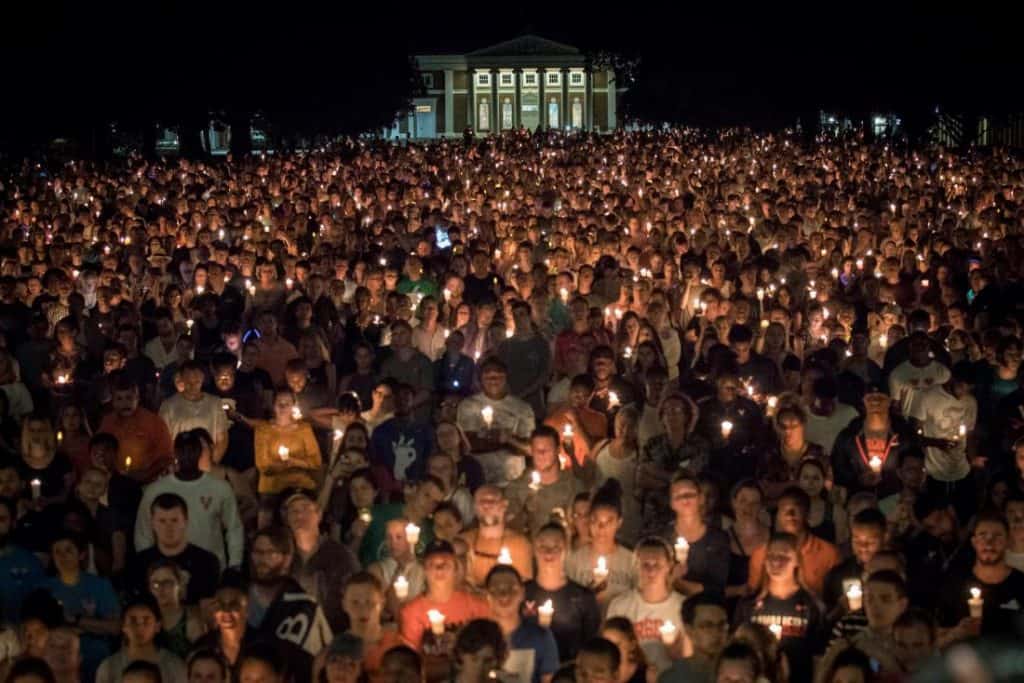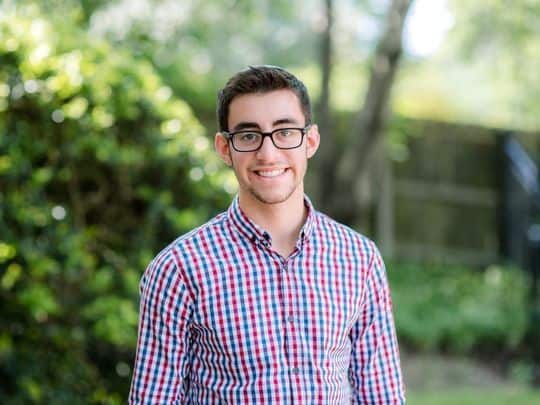Originally published in the Commercial Appeal.
Facing History and Ourselves is an international educational non-profit dedicated to erasing bigotry and racism around the globe. They are funded in part by your gifts to Memphis Jewish Federation’s Annual Community Campaign.
By Michele Becton and Efraim Wiener
Michele Becton is a 2017 graduate of St. Mary’s Episcopal School. Efraim Wiener is a 2017 graduate of Margolin Hebrew Academy. Both are alumni of Facing History and Ourselves.
The recent events in Charlottesville, Va., have shaken this country. The challenge now is to figure out what to do next. And for students across the nation, this can feel like the most confusing aspect.
Where do we go from here? The answer lies in reflecting on who we are as individuals and as a nation, and using our voices. Not to argue or to shout over one another, but to create a dialogue and in that dialogue to listen. And learn.
As former students of Facing History and Ourselves, an international educational nonprofit that seeks to combat racism, bigotry, and antisemitism, we’ve been trained to do this.
In the days after Charlottesville, this training has helped us grapple with the deep divisions we’ve seen. We’ve spent time reflecting on our own identities—as a Christian African-American female and the Jewish great-grandson of Holocaust survivors—along with the legacies of our country’s past to find a way forward.
Our identities are the foundation for how each one of us sees the world today. And since we live in one of the most diverse generations of our time we have a responsibility to each other to face Charlottesville.
Bigotry and hatred are wrong. So is violence in their names. But we must examine why this happened while resisting the instinct to channel only our emotions and anger.
Those tensions could not be more overt than what we have seen over the past year, with Charlottesville teetering us closer to a tipping point.
Make the effort to understand who Robert E. Lee was during the Civil War and what his name symbolizes today. Explore the deep roots of racial unrest in America, from the brutality of slavery to the injustice that followed after it was abolished. Examine what brought the white supremacy protesters to Charlottesville. 
Step back and analyze the power that language and symbols of hate can have wherever you see them, whether it’s a Confederate statue or flag, a swastika painted on the side of a school in an act of vandalism, or in the fiery rhetoric you see on social media.
Hate speech is backed by a history of genocide, prejudice, and injustice. The same derogatory language and symbols have been used over a very long history of time.
Then think about who you are and your role in society. Our identities shape how we see ourselves, each other, and the world around us.
When we make the effort to understand someone else’s identity in relation to our own, we give ourselves the advantage of building a more inclusive society that values different views and beliefs.
Looking back at history and our own personal experiences—whether negative or positive—can help us make more educated decisions on how we act in the present.
Most importantly: join the conversation. Don’t see yourself as powerless. Our voices can be the strongest and most productive weapon towards fighting the type of hate we saw in Charlottesville.
Progress comes from action so let’s help this nation pick itself up and dust itself off from the devastating blow of Charlottesville. Our democracy depends on it.
